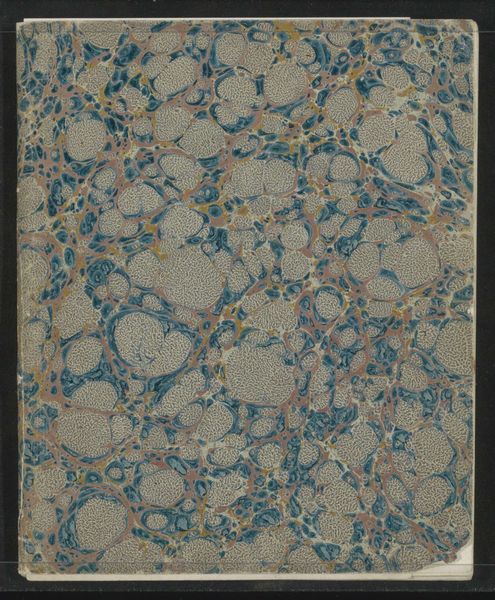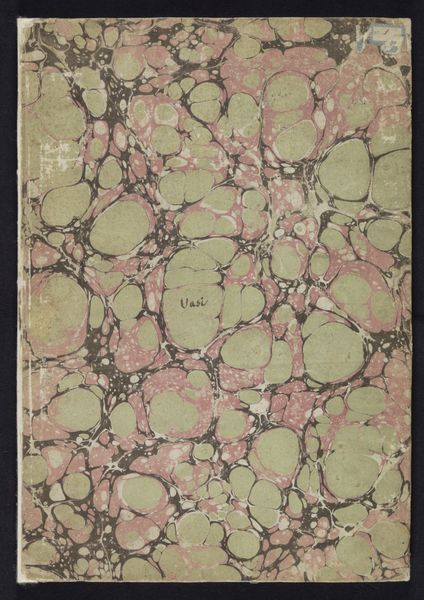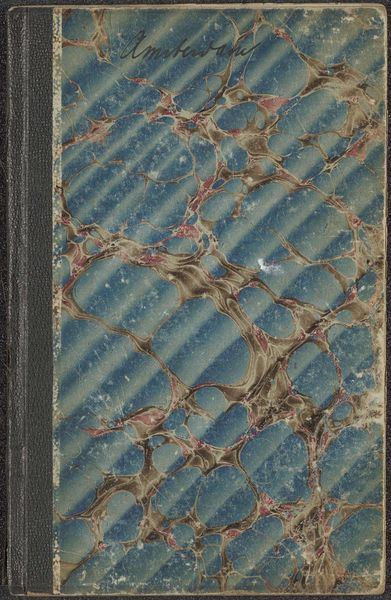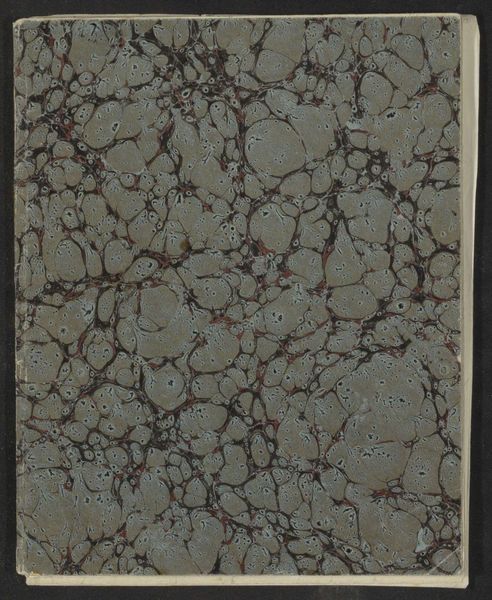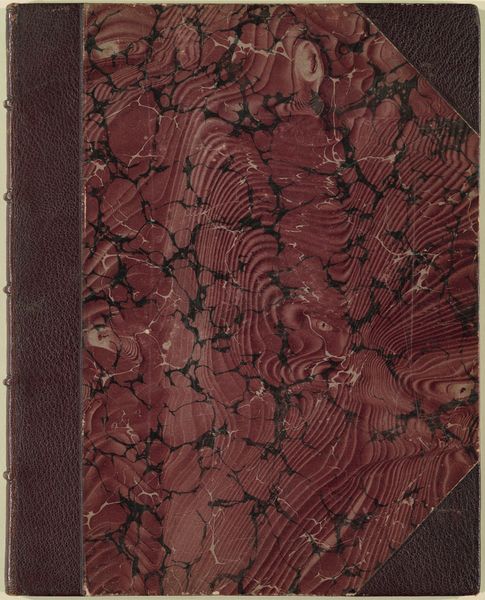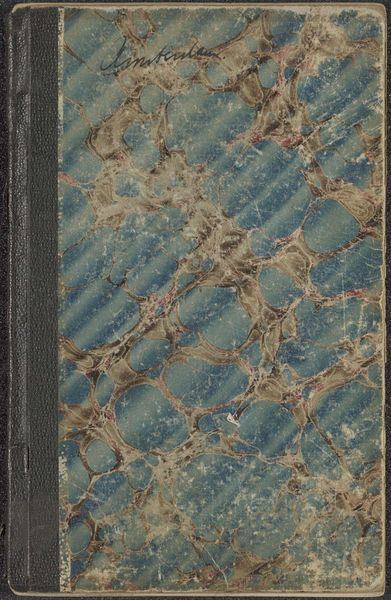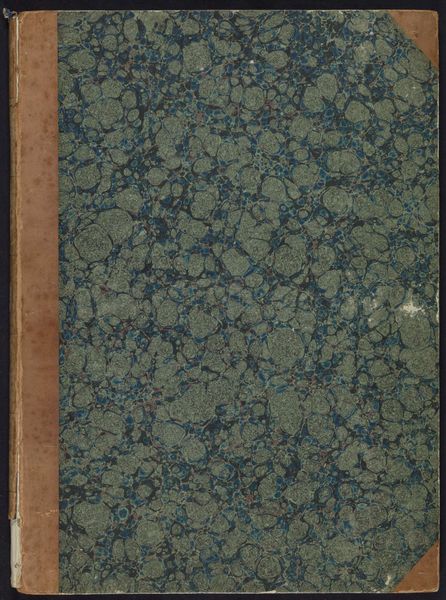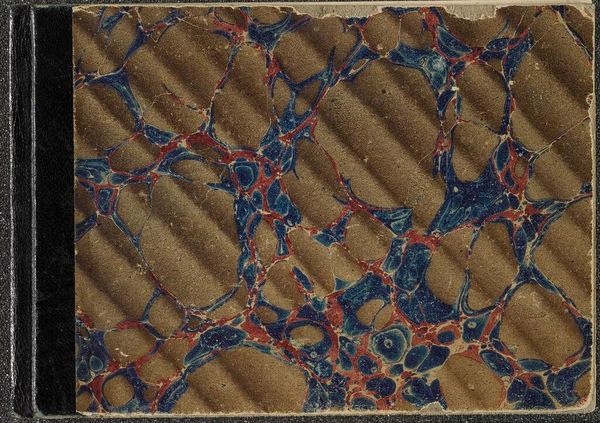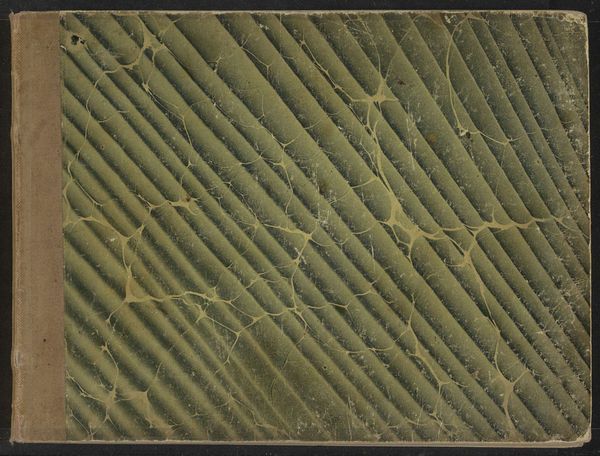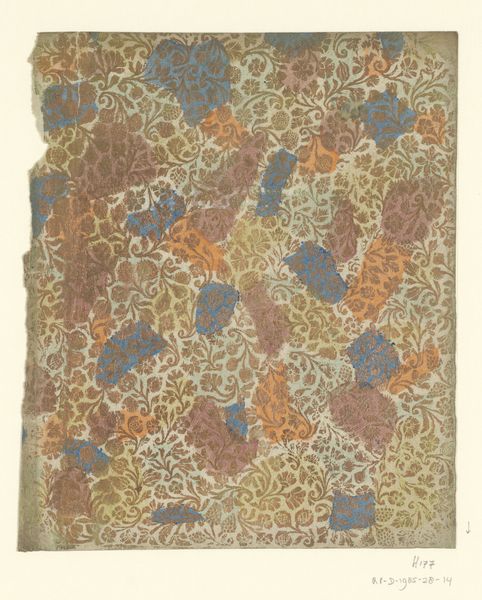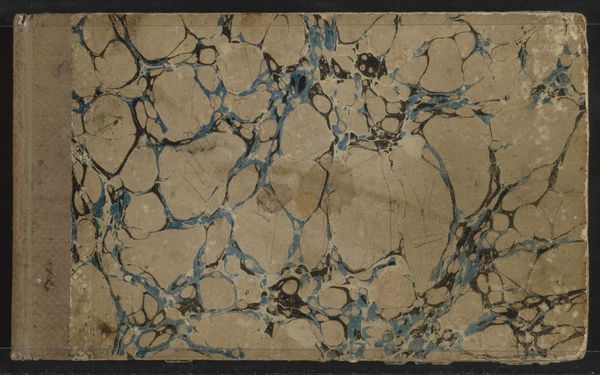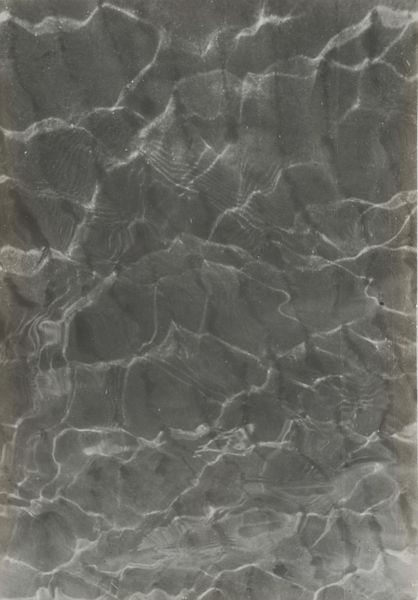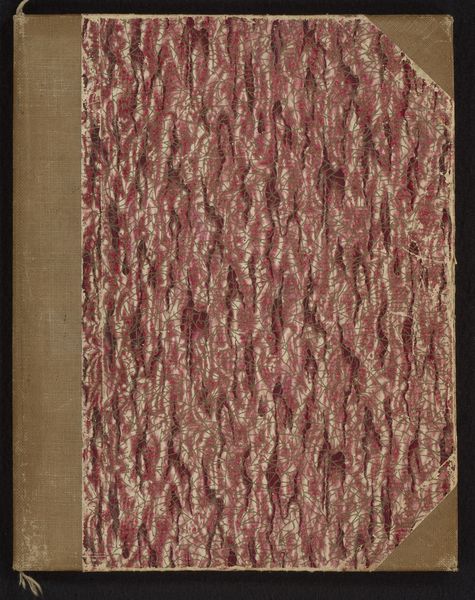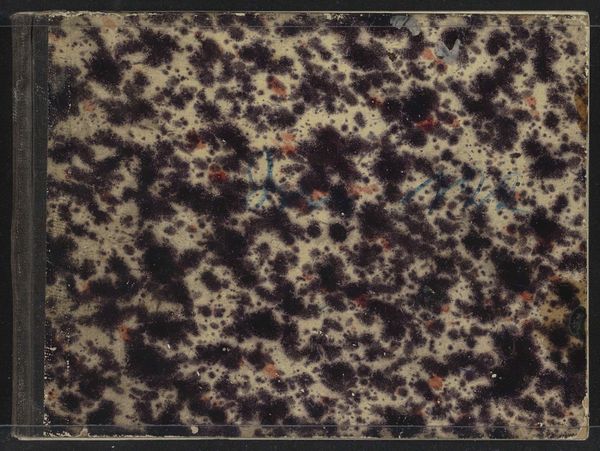
drawing, paper
#
drawing
#
natural stone pattern
#
naturalistic pattern
#
organic
#
impressionism
#
pattern
#
paper
#
geometric pattern
#
subtle pattern
#
abstract pattern
#
organic pattern
#
geometric
#
repetition of pattern
#
pattern repetition
#
layered pattern
#
organic texture
Dimensions: height 208 mm, width 169 mm, thickness 2 mm, width 336 mm
Copyright: Rijks Museum: Open Domain
Editor: Here we have "Sketchbook with 17 sheets," made around 1886 to 1890 by Maria Vos. It's a drawing on paper, and what strikes me immediately is the complex, marbled pattern. How would you interpret this work, Curator? Curator: The cover's design, seemingly accidental, reminds me of geologic formations—the deep-seated pressures and slow time etched into stone. I see a delicate dance between chaos and order. Consider, what patterns do we seek out when we’re trying to find meaning or structure? Editor: So you think the artist intentionally chose this evocative, natural pattern for the sketchbook cover? Curator: Indeed, it hints at the inner workings of creativity. The marbling suggests a blending, a fusion—perhaps the fusion of the artist’s inner world with the external world she sought to capture within its pages. Note also the grid beneath, visible, yet partially obscured. What does that tension evoke? Editor: That's fascinating. I hadn’t considered how much symbolism could be packed into just a sketchbook cover. It makes me think about what the artist wanted to communicate even before the book was opened. The subtle tension you pointed out speaks to conflicting elements, maybe her search for finding the perfect balance of natural forms in art? Curator: Precisely. Visual patterns are potent. They carry memory, both personal and cultural. Recognizing those patterns enables us to tap into a richer, more meaningful exchange with art. Editor: That’s given me a lot to consider about the hidden layers within even the simplest designs!
Comments
No comments
Be the first to comment and join the conversation on the ultimate creative platform.
